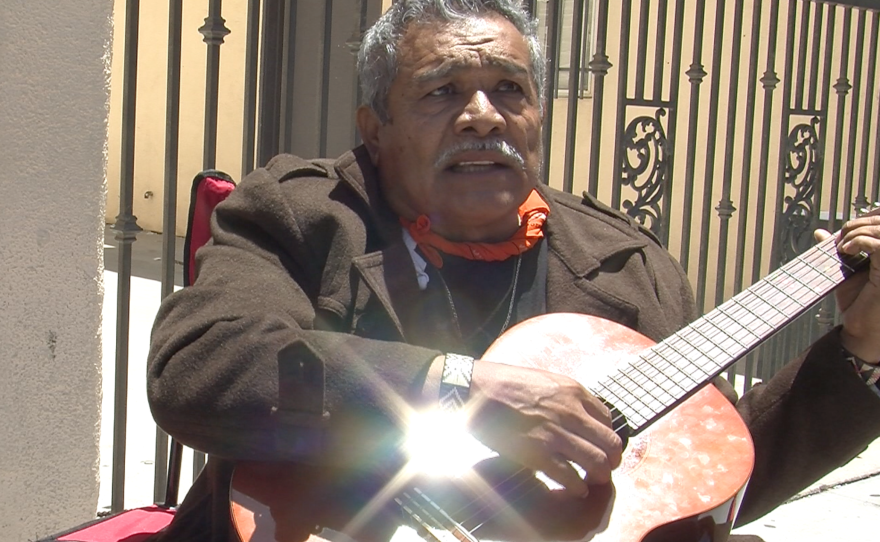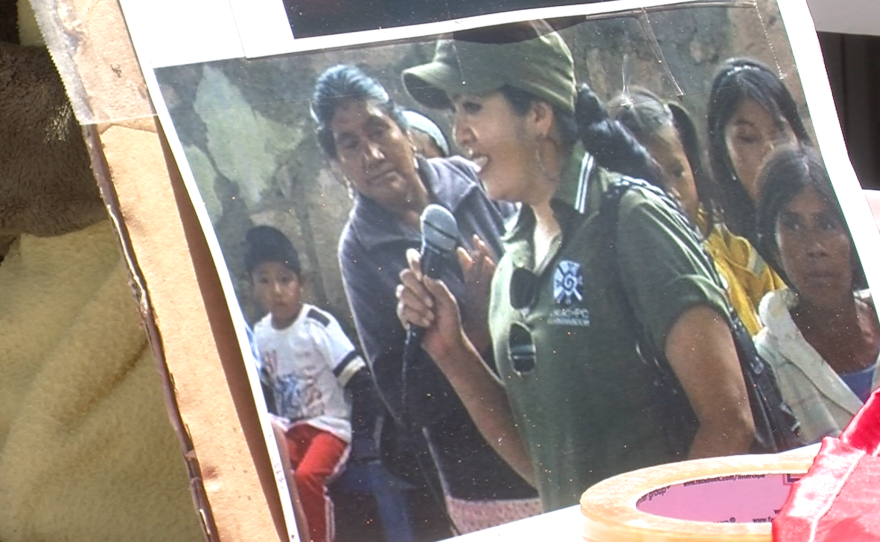Some San Diego residents are on a hunger strike in support of a naturalized U.S. citizen who has been imprisoned in Mexico on charges of kidnapping since 2013.
Nestora Salgado moved back to her hometown of Olinala, Guerrero, after living 20 years in the U.S. There, she began to crusade for the rights of poor indigenous people and led them in a fight against organized crime.
She launched a community police force, an increasingly common method of dealing with crime in a region where many distrust the police. Guerrero is the same state where 43 students were allegedly killed late last year by a drug cartel in collusion with local authorities. The families of the students are still demanding answers in the case.
Guerrero laws allow for self-defense groups like Salgado's. In 2013, she arrested three suspected drug traffickers, and was then imprisoned on charges of kidnapping them. Federal prosecutors dismissed the charges last year, but state prosecutors are still fighting to keep her in prison. The interim governor of Guerrero, Rogelio Ortega, called for her release in January. He replaced a governor who resigned after the 43 students disappeared.
Salgado stopped eating on May 5 in protest of her continued imprisonment. Some San Diegans have joined a global hunger strike to bring attention to her case. They are camping in front of the Mexican consulate on India Street.

“A lot people don’t know, even Mexican people don’t know who is Nestora Salgado and why is she in prison," said Rosa Barajas, one of the strikers. Barajas plans to go without eating for at least three days.
The San Diego strike began Friday, the same day Salgado was moved from a maximum security prison in the state of Nayarit to a women’s prison in Mexico City, where she is allowed family visits.
Felix Garcia, a San Diego resident in his 60s who strummed on his guitar and song revolution-era songs outside of the consulate, hadn’t eaten in more than three days.
“I feel weak and hungry, but my conviction is stronger,” he said.
Garcia said he looks up to Salgado because of her defense of indigenous communities in Guerrero, one of Mexico’s poorest states.
“She represents resistance. Liberty. Freedom,” he said.






